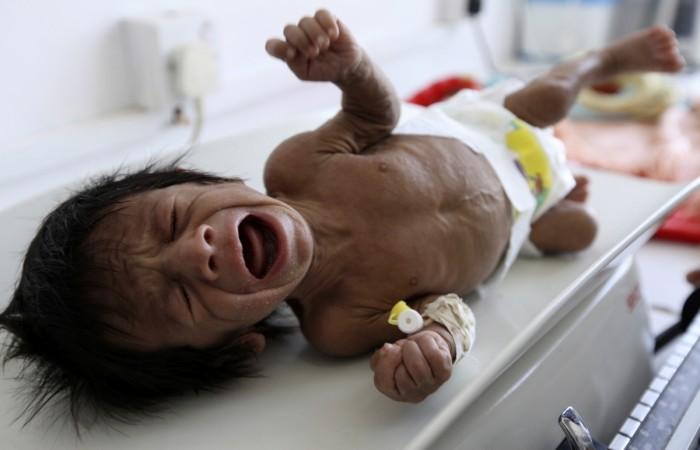
Millions of people in Yemen, which was devasted by the ongoing civil war, will face a severe dearth of food and medicine due to shortage of funds, a multilateral agency warned.
"Funding shortfalls prevent patients from getting free or subsidised treatment and put their lives at risk," the World Health Organisation's (WHO) office in Yemen Twitted.
Millions of people are suffering from a shortage of food and medical care and pushing the country to the brink of famine in the war-torn country, which will also leave at least 2.5 million malnourished children without any life-saving services.
In order to save the lives of the people in the conflict-ravaged country, the agency has urged to meet the pledges made by countries.
At a UN pledging conference in February this year, donors committed $2.6 billion to meet the urgent needs of more than 20 million people. The UAE and Saudi have promised $750 million each at the UN-led fund-raising event, but both countries have paid only a small portion of their commitment so far.
UN agencies working in Yemen have already complained of their inability to continue several humanitarian and health programmes due to shortage of funds.
Civil War
The civil war in Yemen, which started in 2014, devastated the country after Houthi rebels took over the capital Saana and most of the country's northern region. The crisis worsened and spread across the country after a Saudi-led coalition launched an offensive to support the government against Iran-aligned Houthi rebels in 2015.
Apart from killing 90,000 people, the prolonged fight has resulted in the world's worst humanitarian crisis as 11 per cent of the country's population are displaced after the civil war. Besides, the civil war has devastated the country's basic infrastructure, including water and sanitation systems, prompting the UN to describe the situation as "one of the worst humanitarian disasters of modern times".
Of the 34 major UN humanitarian programmes in Yemen, only three are funded for the entire year, a UN official said in August. Several have been forced to close, while other large-scale projects to support families have been unable to start.









!['Had denied Housefull franchise as they wanted me to wear a bikini': Tia Bajpai on turning down bold scripts [Exclusive]](https://data1.ibtimes.co.in/en/full/806605/had-denied-housefull-franchise-they-wanted-me-wear-bikini-tia-bajpai-turning-down-bold.png?w=220&h=138)



